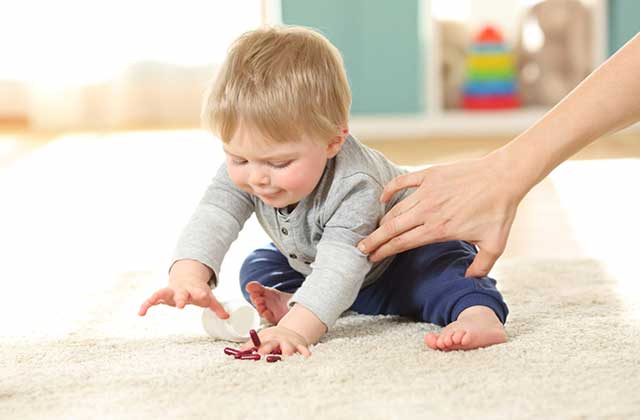7 Things You Can Do If Your Child is Accidentally Poisoned
In children’s cartoons, poisons are easy to spot because they are usually green and inside jars labelled as “poison”. Unfortunately, in the real world, poisonous products are not that conspicuously labelled. They come in different shapes and sizes and are sometimes incorporated in regular containers and packaging.
A poison is any harmful substance that can hurt a person or even kill them when inhaled, touched, or consumed. Poisons are sometimes difficult to spot. They can be found in insects, animals, plants, and even some food. You are considered poisoned when you swallow a poisonous object or food, inhale poisonous substance, or get stung by a poisonous animal, plant, or insect.
Many substances such as carbon monoxide and drugs are poisonous only if you are exposed to higher dosages or concentrations. Other chemicals, such as cleaners, are only dangerous when swallowed.
Children are particularly susceptible to poisonous items around the house, especially if they are not stored properly. They are also sensitive to even small amounts of certain chemicals and drugs.
Common household poisons that can be dangerous to your child include:
• All kinds of batteries
• Insect repellent
• Detergents and other cleaning products
• Medicines
• Make-up and other beauty products
• Poisonous animals or insects
• Outdoor cleaning chemicals
• Poisonous plants
Treating someone who may have been poisoned will depend on the person’s symptoms, age, or whether you know the type and amount of substance that caused the poisoning. If you suspect your child to have been poisoned, consult a doctor or contact online doctor BC.
Symptoms of poisoning
Depending on the type of poison, poisoning symptoms may vary. The common things your child may feel are stomach cramps, difficulty in breathing, diarrhea, vomiting, and nausea. Sometimes, rashes and drowsiness can also accompany the major symptoms. What your child may experience will depend on how much he or she has ingested, breathed, or touched. The most dangerous thing that can happen is when the poison causes anaphylaxis or the swelling up of airways which can leave you gasping for air.
If you know your child has been poisoned, treat him or her immediately. Applying first aid is crucial whether the person poisoned is showing symptoms or not. Here are seven things you can do if your child is poisoned:
1. If your child swallowed the poison, try to make him or her spit it out. If you see an empty or open canister of poisonous substance beside your child, check his or her mouth. Remove any remaining substance out or let the child spit it out without making him or her forcefully vomit. Hide or properly dispose of the poisonous substance immediately.
2. If your child touched a poison or spills it on his or her body, rinse the affected skin area. Clean up your child in the shower and rinse the exposed part for 15 to 20 minutes. Additionally, remove any clothing with spilled poison. Remember to use gloves while doing this. If the area appears to be burned, do not put butter or ointment on it. Instead, call your local poison center.
3. If your child got poison in his or her eye, flush it out. Gently hold your child’s eyelid or eyelids open and pour a steady stream of water into the eye corner near the nose. Do this for the affected eye for at least twenty minutes or until medical professionals arrive. Avoid using any ointment or eye drops unless a doctor instructs you to do so.
4. If your child inhaled poison, get your child to an area where he or she can get fresh air. Do this immediately to avoid exposing the child further to dangerous gasses or fumes but remember to call for emergency help first.
5. If the child is vomiting, turn his or her head to the side. This is to prevent your young one from choking. Stay with your child as much as possible.
6. Begin CPR if your child is not showing any sign of life. The most horrible thing that can happen is if the child becomes unresponsive. If you know CPR, administer it right away until help arrives.
7. The most important tip of all is to call an ambulance or local poison control centre if you know your child is poisoned. It is important to monitor the little one for the poison’s effects. Get help immediately when any of these things happen:
- The child is having difficulty breathing or is unresponsive
- The child is experiencing drowsiness
- The child is having seizures
- The child is becoming restless and cries a lot
- The child has the possibility of getting overdosed
Prevention is key when it comes to poisoning. Always put away any poisonous or potentially poisonous substances to keep them out of your child’s reach. Poisoning is an emergency situation that requires emergency service at the hospital. But if you or your child is experiencing other illnesses, you can consult an online doctor BC for diagnosis and treatment.
